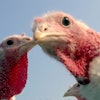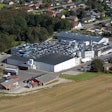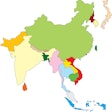The French poultry industry is relatively stable, but behind this stability both meat and egg producers have challenges and difficulties to deal with, according to Pascale Rigomier, poultry veterinarian with Chene Vert Conseil.
As far as egg production is concerned, producers need to be up to date with the welfare regulations coming into force in January 2012, said Rigomier, and the majority of farms are already equipped in compliance with the new laws. However, smaller farms are ceasing production, and some older farmers have also decided to leave the industry — investment is often difficult, but particularly if there is not time to see a return on investment.
There has been an increase in the size of farms, as some producers exit the market and others take up their production, and new farms are being set up with meat producers moving into egg production. And while some French farmers have been late in taking action to comply with the 2012 rules, they have been thorough — French authorities have said that they will close down any producer who, come January, is acting outside the law.
There has also been a diversification of production, with more free range and fewer cages, said Rigomier. France may have been late in moving in this direction when compared to the UK and northern Europe, but there has been increased aviary production.
This summer saw an increase in infectious bursal disease in France, resulting in a decline in egg production. On some farms this decrease has been as much as 40%. Other problems include brachyspira and mycoplasma synoviae, the latter emerging some three years ago and spreading. It can lead to anywhere from 2% to 10% of eggs being rejected and while the problem is being challenged, it is hard work.
Meat production must also comply with welfare legislation. This is particularly a problem for those involved in exports, and in order to remain competitive, producers have to operate close to maximum stocking densities, so ventilation, mortality rates, leg and skin quality all need particular attention, said Rigomier.


















